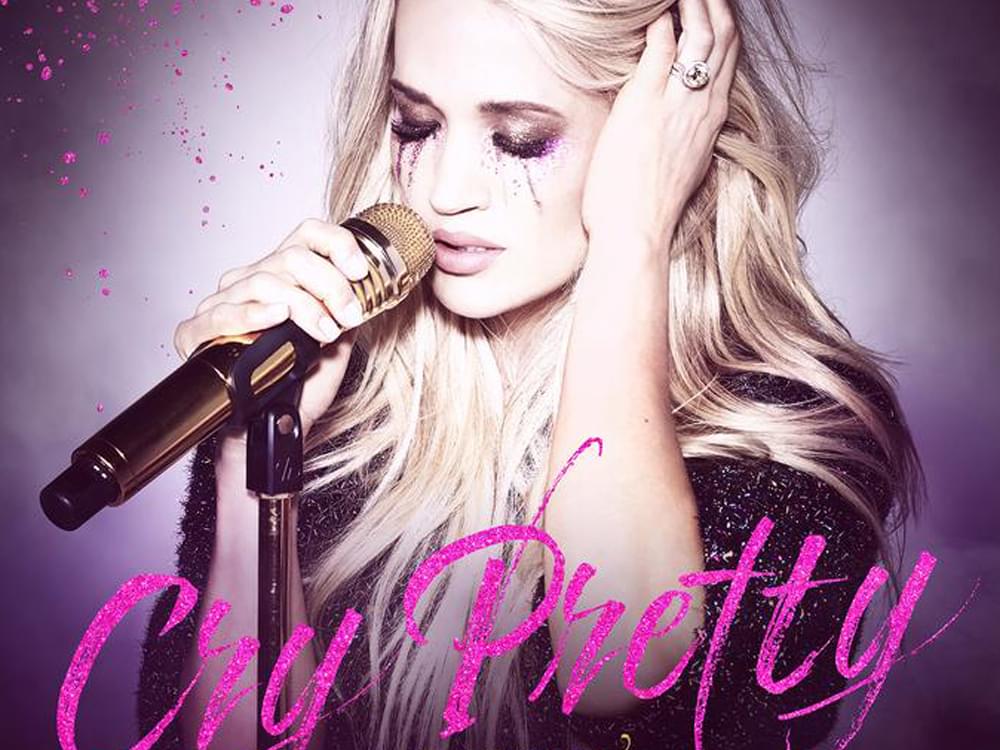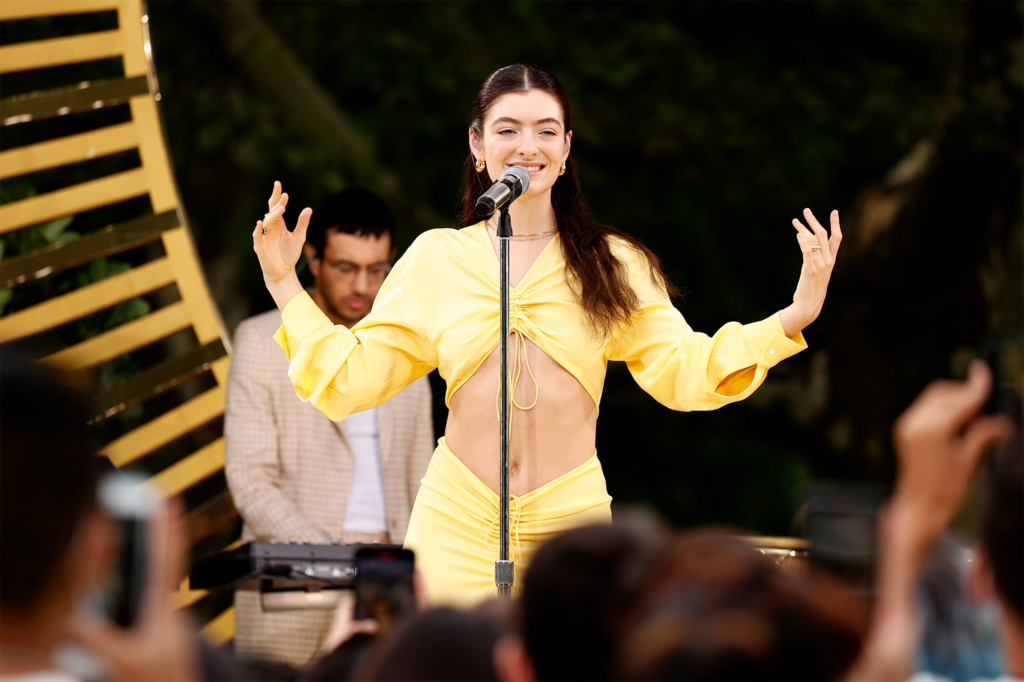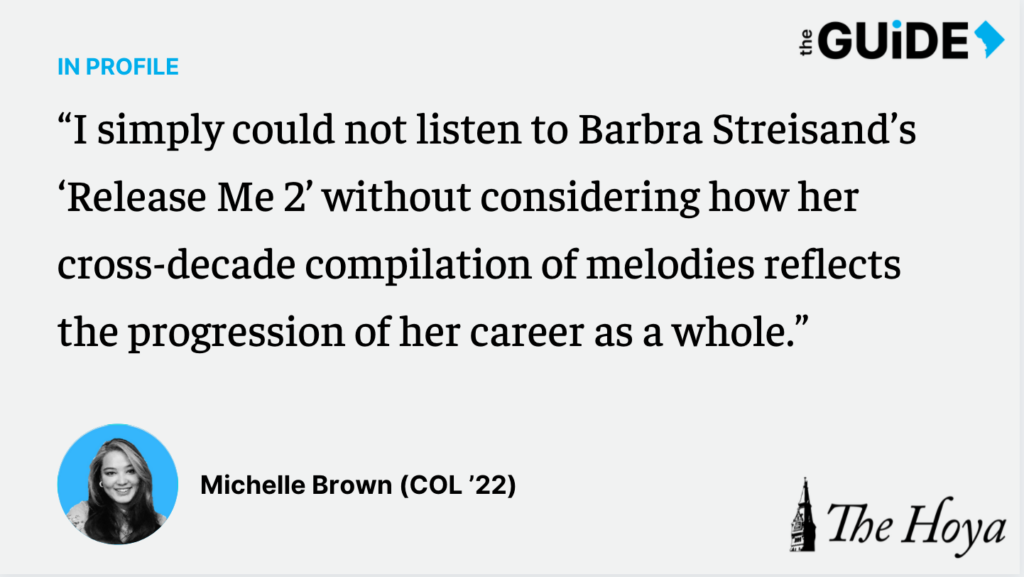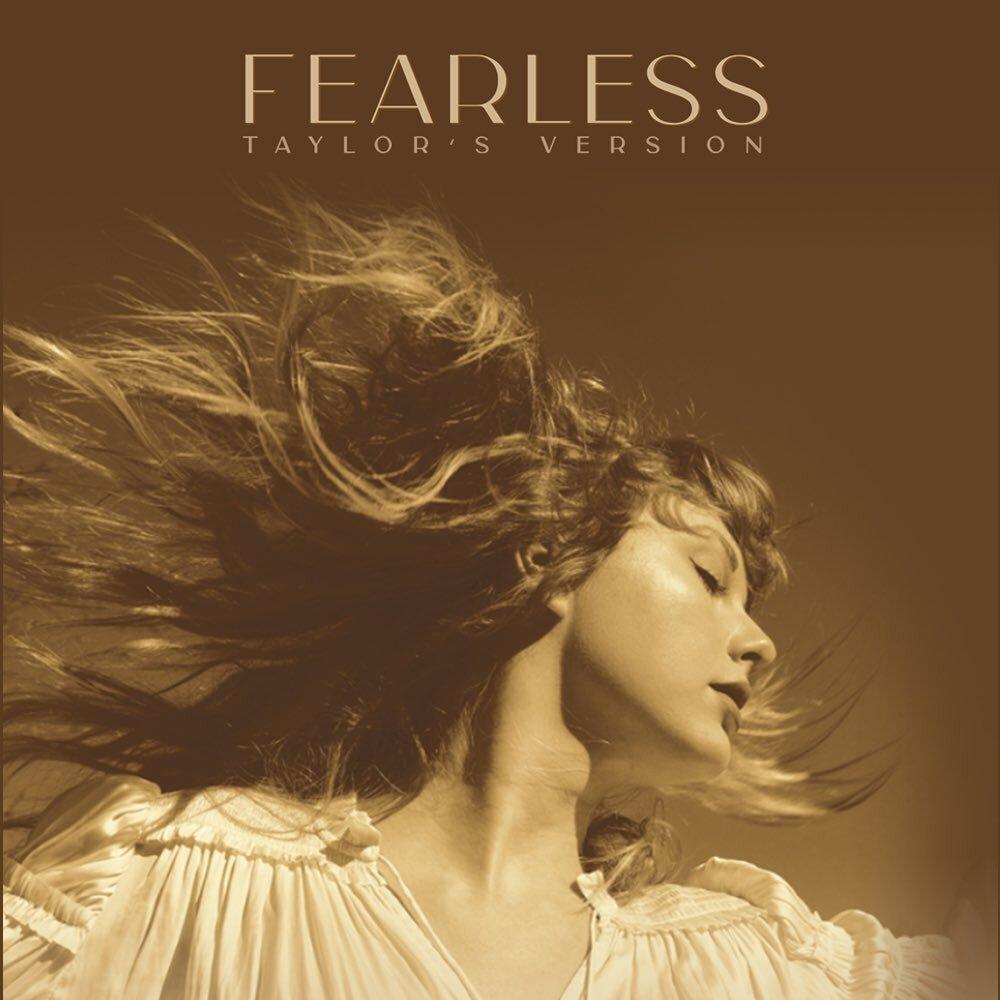★★☆☆☆
Carrie Underwood takes few sonic risks in her latest studio album, “Cry Pretty.” Most of the album’s songs feature Underwood playing to her strengths, creating radio-ready country ballads that everyone can sing along to in the car. However, with “The Bullet,” a song about gun violence, Underwood dips her toes into socially conscious music — a welcome turn in the country singer’s career, even if her stance is decidedly shallow.
Most of the songs on “Cry Pretty” follow a similar structure. They start out quiet and then slowly build with an electric guitar interlude and a strong finish, showing off her wide vocal range. These songs are predictable and struggle to keep the attention of the listener.
In some songs like “End Up With You” and “Backsliding,” she attempts to add a slight twist to her usual sound with more soulful R&B beats. These songs that have more pop vibes will surely be successful on the charts because of their appeal to markets outside of country music. However, they feel less authentic to Underwood’s artistic identity and more like Underwood is following the country-pop trend.
Another chart-topping but tired anthem on the album is “Southbound.” A classic summer song about drinking on pontoon boats, it already feels like the same story that has been sung a thousand times in country music. Once again, the song sounds inauthentic and pandering, aiming for commercial sales rather than artistry.
Underwood has a few songs reflective of her more personal past work, despite their lack of musical creativity. Underwood’s voice comes through in “Cry Pretty,” the title song of the album. The track explores the juxtaposition between a flawless public image and an internal struggle to hold it together over the roar of guitar licks that sound straight out of ’80s hair metal.
Similarly, in the powerful ballad “Kingdom,” Underwood emotes her gratitude for a seemingly mundane family life. While these may not the most vulnerable songs to come out of country music, they do depart from her usual impersonal style.
The real standouts of the album are her more political songs, “The Bullet” and “Love Wins.” “The Bullet” describes the aftermath of gun violence — a topic rarely explored in country music. It recognizes gun violence as a problem but does not take a specific stance on the issue. The lines, “You can blame it on hate or blame it on guns / But mamas ain’t supposed to bury their sons” highlight Underwood’s relatively noncommittal take on the origins of gun violence. The song is a careful step into the world of socially conscious music, highlighting the emotional implications of gun violence rather than the politicization of the issue.
“Love Wins” glosses over the mention of any specific issues. Underwood instead concentrates the song more on the power of love to conquer all. Sounds nice, but the lyrics undermine and romanticize the issues it alludes to. For example, the first verse begins, “A stray bullet and a momma cries / Her baby won’t be coming home tonight.” Although the subject matter is serious, there is no specificity and thus no gravity.
To make things worse, the chorus offers a trite solution with a blithe attitude: “And we’ll never fall if we walk hand in hand / Put a world that seems broken together again / Yeah I, I believe in the end love wins.” Unfortunately, taking a stroll holding hands won’t bring back the dead baby from the first verse.
Although it is a respectable risk to take on sociopolitical issues through music, Underwood’s execution is surface level. Her lack of depth is understandable given her lack of experience addressing contentious issues in her music. However, her approach leaves much to be desired. The main takeaways from this album seem to be gun violence is sad and love is good. It is as if Underwood attempted to pander to the trend of socially conscious music without actually committing to any social statement. While Underwood continues to wow with her unbelievable voice, her newest album lacks authentic growth.















